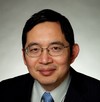The book mainly uses the New Institutional Economics Approach (NIE) to examine the formation and development of industrial clusters in China through multiple case studies of textile and clothing clusters in the Zhejiang province. The micro case studies illustrate the interaction between institutional change and the industrial development of China in transition.
It also attempts to fill the information gap through an analysis of the typical institutional factors leading to the development and upgrading of industrial clusters, and provides a better understanding of the changing nature of the public-private interface in the process of cluster development in China.
Sample Chapter(s)
Chapter 1: Introduction (69 KB)
Contents:
- Introduction
- Institutions, Industrial Clusters and Regional Development
- Global Institutional Change and the Development of Textile and Clothing Clusters in China
- Institutional Change and the Development of Industrial Clusters in Zhejiang Province
- The Ningbo Clothing Cluster
- Shaoxing Textile Cluster
- Yiwu Socks Cluster
- Conclusions
Readership: Undergraduates, graduates and scholars in contemporary Chinese Studies, development studies and international business management in the Asia-Pacific region.























